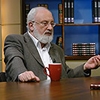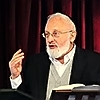Audio Version Of The Blog – 3/20/22
Listen to an Audio Version of the Blog
Download:MP3 Audio

Listen to an Audio Version of the Blog
Download:MP3 Audio

Michael Laitman, On The Times of Israel: “The Only Destroyer in the World”
It has been more than three weeks now since the war in Ukraine began, and there is still no truce in sight. Reuters estimates that more than 15,000 people have died, and more than three million have been displaced. Still, there is no end in sight. It is becoming clearer by the day that there is only one reason for the war and one goal that the killing and destruction aim to achieve: domination of the ego.
In his classic essay from the early 1930s “Peace in the World,” the great thinker and kabbalist Baal HaSulam wrote that man is governed by the sense of uniqueness, the feeling that only I exist in the world. A few years after he wrote the article, the whole world experienced the devastating effects of this perception.
Since then, people have not become less self-centered, but actually much more so. In 2009, psychologists Jean M. Twenge and Keith Campbell gained renown for their insightful book The Narcissism Epidemic: Living in the Age of Entitlement. In it, they not only lament “the relentless rise of narcissism in our culture,” they also stress that “the rise in narcissism is accelerating.”
The current conflict in Ukraine demonstrates that human egoism has indeed reached a level where the horrors of World War II are no longer a deterrent. Once again, the ego will stop at nothing to gain power and control. The ego, as Baal HaSulam describes it, “feels that all the people in the world should be under his own governance and for his own private benefit.”
We cannot uproot the ego; it is our makeup. Yet, we do not need to. Instead, we need to redirect it toward constructive goals rather than destructive ones. Since we possess an inherent sense of uniqueness, we should make people feel unique for their contribution to society rather than for their power and control.
Through public opinion, we can “manipulate” ourselves to act in favor of society rather than against it. In this way, we will create communities where people feel emboldened, safe, and loved precisely because they contribute their skills and efforts to the common good.
The pointless destruction we are seeing today is the product of our nature. We could avoid it if we recognized our nature and dealt with it properly. Because we are not taking control over our ego, the ego is controlling us. There can be no compromise: Either we, as a society, govern and direct each person’s sense of uniqueness toward constructive goals, or our sense of uniqueness, aka narcissism, will lead us where it will. If we opt for inaction, the latter will happen and we will destroy ourselves and the world we live in. This is a certainty.
“The wise man’s eyes are in his head,” wrote King Solomon (Eccl. 2:14); he sees the future. If we are wise, we will work to build a good future for ourselves and for our children. If we are not, we will destroy our future by our own actions.
[295441]

Michael Laitman, On The Times of Israel: “The Legacy of a Leader”
This week was the 30th anniversary of Menachem Begin’s passing. Begin was among Israel’s greatest leaders. He was the commander of the Etzel paramilitary organization during the struggle with the British Mandate in Palestine, became Israel’s 6th prime minister, made peace with Egypt, and destroyed the nuclear reactor in Iraq before it became operative, among many other achievements. But in my eyes, what stood out most about Begin was his integrity.
In light of today’s leaders, of every party and side, Begin is an example to look up to. He gave the country his very best, and when he felt that he could no longer carry out his role as prime minister, he announced his resignation and retired from public life. To me, his legacy is the legacy of a true leader.
It is true that in those days, in the 1970s and early 80s, when Begin was the prime minister, we were all different. People were more naïve and less sinister and narcissistic than today. Nevertheless, Begin stood out even among his contemporaries. This does not take away from the greatness of leaders such as David Ben Gurion and others of his time, but Begin was still something else.
In Israel, everything happens very quickly. Regrettably, declines happen quickly, too, and today’s Israeli leaders are many miles away from those of the past.
In fact, Begin was so unique that he even won the favor of my teacher, RABASH. RABASH and I had an arrangement: Whenever we were in the car together, he would have me turn on the radio to listen to the news every hour. He was always looking for clues from the Creator, and worldly events were God’s words to him. However, two minutes into the news, when the anchor started quoting this or that politician’s words, RABASH would immediately tell me to turn off the radio. The only exception was Begin. Begin’s words were a delight to him. The clarity and integrity of his words were truly compelling for RABASH.
Another unique aspect about Begin was his respect for religion. Israel is a divided country in countless different ways. Despite being non-religious himself, Begin had tremendous respect for religious leaders. His sincere esteem for them earned him the support of many of them, but more importantly, the legacy of respecting religious and non-religious alike still prevails in Israel, to a great extent.
Today’s leaders cannot be like him. They do not come from the same place of clean ideology because if they did, they would not make it to leadership positions. Not only have the leaders changed, but more importantly, the society that engenders them has changed. Hence, its leaders have changed accordingly.
If we are ever to see such leaders as Menachem Begin rise again, we must first become a society that can generate them. Today, integrity is worthless. People appreciate power, not sincerity. As a result, they get power-hungry leaders, who are willing to trample anyone on their way up the heap. By the time they get to the top, they have forgotten who they presume to serve, and they have no other thought in mind but their own success.
It is not their fault; I have no grievances against any of our leaders. My only regret is that we, the Israeli society, are not rising to the challenge of building an exemplary society that the world can appreciate.
The world will not thank us for our high-tech weapons or sophisticated spying software. It will also not thank us for building fast computer chips or cool navigation apps.
The world will thank us only if we set an example of solidarity, of mutual care and mutual responsibility. If our leaders display these traits, and if they are backed by a nation that places solidarity above all else, we will win the world’s favor and our leaders will be welcome everywhere.
Solidarity and cohesion, in the end, are the only exports that the world needs from us. Begin promoted these, and this is why I respect his legacy.
[295308]
Medium published my new article “Children, Imagination, and Creativity”
When children watch a movie, they are glued to the screen. Children are naturally imaginative; they “live” what they see. They do not distinguish between fantasy and reality as adults do. Their imagination can take them anywhere — to the most wonderful places or to places that will leave them traumatized. It is therefore our responsibility to see that they go to good places.
After children watch a movie, we can often see how deeply it impresses them. We can find the body language, tone of voice, and phrases of the characters they watched spontaneously reflected in the children. These are not only transient impressions, but influences that shape their entire worldview and have a significant impact on their future.
Because children naturally learn by example and perceive what they see on the screen as reality, they perceive the events in the movie as examples of real life. As a result, they will try to imitate in real life the behavior and attitude of the protagonists they saw in the film.
Consequently, if we want our children to grow up sound in mind and mentally capable, we should expose them to entertainment that provides them with the right examples. There are several things we need to consider when it comes to giving children the right examples.
First, children’s movies should feature realistic characters, not mutants or distorted characters of any kind. For example, if animals do not talk like humans, they should not do so in children’s movies. Talking animals may be good entertainment for us, but they distort children’s perception of reality.
Second, a good film should neither preach nor frighten. On the contrary, it should enthrall the children and take them on a journey that will instill in them a positive attitude toward themselves, their friends and family, and toward the environment. The thinking should be this: Good social connections produce good results. When we work together, give, love, share, and care, we can change anything for the better.
Third, we should prepare children prior to watching a movie, and talk to them afterwards. Preparing and concluding together will help them process the messages correctly and they will make the most of the experience.
Finally, it would be a good idea to give them an assignment, preferably to a group of children such as siblings or classmates. The assignment should go something like this: On a clean sheet of paper, draw a new, perfect world or a perfect city. Depict the relationships between people, where and how they build their houses, what schools, parks, and stores look like, and everything else that is part of their lives.
Afterwards, have a serious discussion about their assignment; there is much to learn from it. At the end of the project, you can take the children to see professionals and ask them about their work. For example, ask teachers how they see their jobs, how police officers feel about the relationship between them and civilians, how architects make decisions about various aspects of the houses they design and how these decisions affect the lives of the people who live in them, etc.
As William Shakespeare wrote, “All the world’s a stage, and all the men and women merely players.” It is up to us to determine whether our children watch horror movies or cheerful ones. To a great extent, this will determine if they grow up thinking that life is a nightmare or a wonderful adventure.
[295531]
My new article on Linkedin “Our Future Is Today”
The time we spend with ourselves is usually the occasion for deep introspection. What we think about when we are alone was the question a new study sought to explore. A recent comprehensive study on this topic found that when a person is alone, he or she thinks about the past or the future, while with a friend or even a group of people, he or she is focused on the present.
A new research conducted by the Department of Psychology at Bar-Ilan University in Israel found that we tend to escape into the past or fantasize about the future when we are alone. The reason is simple: we have no control over our environment. Therefore, we can travel at any time and jump back and forth between thoughts about the past and fantasies about the future.
As soon as people surround us, even if we only feel their influence on us, we are immediately connected to the present, to the here and now. Even without saying a word, the people around us raise fundamental questions within us.
The present moment brings with it a deep questioning about the flavor of life. You must confront on the spot what you need to do to change your life. It is our time of free choice. That is why the present is the most difficult time, and we prefer to wander into the past or into the future.
It is a complex problem to persevere and endure the present split second. We can succeed if we keep in mind the purpose of creation, which is to discover and hold on to the giver of life. Discover the Creator, the supreme power of nature, and absorb His good and beneficent qualities.
The present is renewed every moment. Therefore, we need an environment that guides us properly, that helps us sharpen the essential questions of life, and not waste a moment in digressing into the realms of the past or the temptations of the future.
If we choose a good environment that is aware of the purpose of creation, we have the opportunity to deal with questions like these every moment: What are we living for? Where do we want to go? And how can we use the present moment properly?
If we give up on mastering the present moment, we will continue to be immersed in what was or will be. But if we pursue the search for the true meaning of life with all our might and use the freedom to cling to the Upper Force, we will use both the past and the future wisely to justify the actions of the Force of Nature over everything we have gone through so far and to gain confidence and trust in the future. So why should we worry about tomorrow if we rely on the Upper Force in the present moment?
When we develop a spiritual view of reality, we no longer perceive our life as a temporary human phenomenon on earth, but rise above the gurgle of time; it is discovered that time exists only for us to set our perceptual knobs correctly.
[295447]
 In the tale of Purim, Mordechai uncovers a conspiracy against the king and saves him. Yet, the king elevates another person, Haman, and makes him a minister, the second in charge after himself.
In the tale of Purim, Mordechai uncovers a conspiracy against the king and saves him. Yet, the king elevates another person, Haman, and makes him a minister, the second in charge after himself.
Haman is one of the descendants of Amalek (an acronym of “Al Menat Lekabel,” “For one’s own sake”). He is the representative of egoistic desires in a person.
And Mordechai, who saved the king, gets nothing for it. After all, the quality of bestowal requires you to give. To give what? Everything! When? Now! For how long? Forever!
Bestowal is just to bestow and receive nothing in return. Otherwise, it is not bestowal, but some kind of bargaining.
However, nature constantly grows egoism within us, it develops, it becomes bigger and bigger. Therefore, the power of Haman grows, he brings everyone to their knees, except Mordechai.
Mordechai declares that he is Yehudi (from the word “Yehud,” “Unity”) and therefore does not bow before egoism. Haman, who represents the ego, demands that everyone obey him and work for egoism. But this is against the basic law of nature, against the Creator.
Those who understand this cannot accept it. Mordechai cannot accept it either. Others, however, are in a state when it is not revealed to them as reliably as to Mordechai that the highest force in the world is the quality of bestowal and love, altruism.
They see how everything is controlled in an egoistic way and everyone who uses their egoism thrives.
Therefore, our egoistic intentions always demand some kind of benefit for themselves so that we fill them and constantly take care of them. If suddenly there is a desire to do something for someone without getting anything in return, then, of course, egoism resists such an inclination and tries to kill it. Therefore, Haman tries to kill Mordechai in every possible way.
[295314]
From KabTV’s “Spiritual States” 3/15/22
Related Material:
The Characters Of Purim: Haman
Haman Today
The Great Light Of Purim
 Question: In the story of Purim, King Ahasuerus invites Queen Vashti to a feast, but she refuses to participate in it. It’s very strange. How can it be that the queen refused?
Question: In the story of Purim, King Ahasuerus invites Queen Vashti to a feast, but she refuses to participate in it. It’s very strange. How can it be that the queen refused?
Answer: Queen Vashti personifies all of creation (the common desire). And the creation is not yet ready to attend such a big feast of the Creator or the King, because not everything has been corrected yet. Therefore, Vashti, being not ready to receive, refuses to take part in the celebration.
Then the king decides to change this desire, meaning to change the queen. He announces a beauty contest and chooses a new queen, a new desire, which in this state can still receive. Thus Esther, Mordecai’s niece, becomes the queen.
Mordecai is one of the people who lived in the king’s palace. When he was young, he uncovered a plot against the king and saved him. From the point of view of Kabbalah, this means that both in the spiritual world and in our world there are many forces for and against, positive and negative.
By the king we mean the Creator Himself. Therefore, there are forces both against Him and for Him.
The story of Purim tells how the regrouping of forces takes place in order to lead to the absolute revelation of all the governance of the Creator.
[295311]
From KabTV’s “Spiritual States” 3/15/22
Related Material:
Feeling Purim
Purim Signifies The Birth Of A Corrected World
The Characters Of Purim: Haman
 The war has led to a big increase in oil and gas prices, which has a hard impact on people’s lives in many countries. What can we do to make people suffer less? The only thing that can help is to unite people more and attract the light of the Creator to cover all crimes.
The war has led to a big increase in oil and gas prices, which has a hard impact on people’s lives in many countries. What can we do to make people suffer less? The only thing that can help is to unite people more and attract the light of the Creator to cover all crimes.
But we must understand that the states that the world is going through now are large corrections that cannot be avoided. These are not personal, private problems but global correction. We will have to pay for the world to become corrected.
Therefore, it is not necessary to concentrate so much on the increase in prices, of course, they will rise. But we must understand that this is how we pay for our freedom, for not being bribed by personal comforts. You need to rise a little above your egoism and understand that you must pay for freedom, for correction, there is no way out.
We want to be a free people in our country, that is, free in our desire and to direct it to where it is needed: to connect, to make the final correction so that no one tells us how to think and what to desire, not to make slaves of us, and own our thoughts and desires.
This freedom must be paid for by efforts to rise above egoism. Then in our connection, we will be freed and there we will cleave to the Creator.
We are free in our connection with each other, no one obliges us to connect; we, ourselves want to serve each other. This means freedom: I feel that I depend on everyone and serve everyone, and through them, I serve the Creator. There is not a single free desire in me, but I feel free because all the use of my desires leads me to dependence on the Creator. But I am free because I know how to use myself in the best perfect way.
[295188]
From the Daily Kabbalah lesson 3/14/22, “Winning the War (with an evil inclination)”
Related Material:
How Can Military Conflicts Be Avoided?
Rise Above The Oppositions
Movement According To The Ray Of Light
 Question: You say that it is not enough to be a good person, it will not do anything, that you still must make corrections. What does making corrections mean? And how does a person making corrections affect the rest of the system?
Question: You say that it is not enough to be a good person, it will not do anything, that you still must make corrections. What does making corrections mean? And how does a person making corrections affect the rest of the system?
Answer: Nature is showing us today our disparity with it. Man is the only creature in all of nature that acts against it. We, people, are given the opportunity to act within certain limits, as we want, as we wish, up to the point of self-destruction.
Unfortunately, we violate the overall harmony because we are directed against global, integral nature in which there is a law of complete interconnection, that is, the law of mutual bestowal, mutual support, and mutual guarantee, as a single organism in internal homeostasis of all systems, in equilibrium, balance, and harmony. And we do not know it.
Question: If we do not know this harmony, then why are we being beaten?
Answer: We are beaten so that we recognize it. By our actions, we reveal shortcomings that we must correct according to the level we are at. That is, if I were a schoolboy in the first grade and did something wrong, they show me how to do it right at my level. And it does not matter that I might be hurt a bit. Nature takes into account my actions only at the level at which I should function correctly.
That is, nature, as a true judge, corrects us with suffering, and pushes everyone in accordance with his level of development.
[294954]
From KabTV’s “Close-Up. Partnership Agreement” 4/7/10
Related Material:
See The True Reality
Ynet: “What Is The Hidden Law Of Nature?”
Faith Above Reason Is Bestowal Above Reception
 Question: The evil eye is a phenomenon known to many firsthand. Someone got jealous, was praised or over-praised. Many do not even take photos of their children because they are afraid of the evil eye.
Question: The evil eye is a phenomenon known to many firsthand. Someone got jealous, was praised or over-praised. Many do not even take photos of their children because they are afraid of the evil eye.
Answer: The evil eye does exist. Since we are all interconnected, one’s bad thoughts about others does, in fact, bring hindrance into their lives. But at the same time, the person himself suffers too.
The fact that some people have the power to concentrate evil in themselves and purposefully influence others while others do not depends on the root of their soul. I know some women that would look at a child and he would come down with a fever.
They do not mean for it, but it still turns out that way. There are a lot of such examples.
Question: Can one get rid of such a quality?
Answer: Yes and no. He can try to do good, but at the same time this is his quality.
Question: Why are all kinds of witchcraft and sorcery more common among women?
Answer: Women are physically closer to nature, so their sense of connection with nature is more developed.
Question: What would you recommend to people who feel the evil eye, the curse? Is there any way to annul witchcraft?
Answer: Act with kindness toward others and thus neutralize all negative influences.
[294331]
From KabTV’s “Spiritual States” 2/1/22
Related Material:
The Evil Eye Is The Power Of Thought
The Masach Is The Power Of Thought
How Do A Kabbalist’s Thoughts Affect The World?